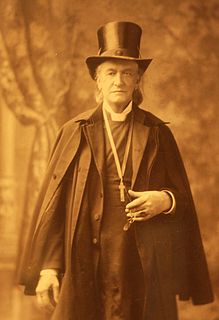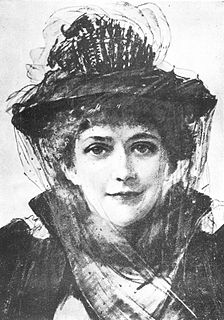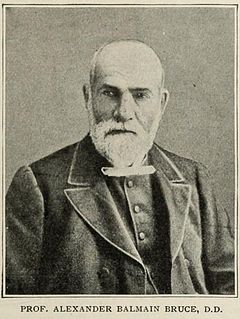A Quote by Henry Benjamin Whipple
Man, being essentially active, must find in activity his joy, as well as his beauty and glory; and labor, like every thing else that is good, is its own reward.
Related Quotes
The refining influence is the study of art, which is the science of beauty; and I find that every man values every scrap of knowledge in art, every observation of his own in it, every hint he has caught from another. For the laws of beauty are the beauty of beauty, and give the mind the same or a higher joy than the sight of it gives the senses. The study of art is of high value to the growth of the intellect.
Private property is a natural fruit of labor, a product of intense activity of man, acquired through his energetic determination to ensure and develop with his own strength his own existence and that of his family, and to create for himself and his own an existence of just freedom, not only economic, but also political, cultural and religious.
When every one is to cultivate himself into man, condemning a man to machine-like labor amounts to the same thing as slavery. If a factory-worker must tire himself to death twelve hours and more, he is cut off from becoming man. Every labor is to have the intent that the man be satisfied.... His labor is nothing taken by itself, has no object in itself, is nothing complete in itself; he labors only into another's hands, and is used (exploited) by this other.
It is not enough merely to exist. It's not enough to say, "I'm earning enough to support my family. I do my work well. I'm a good father, husband, churchgoer." That's all very well. But you must do something more. Seek always to do some good, somewhere. Every man has to seek in his own way to realize his true worth. You must give some time to your fellow man. Even if it's a little thing, do something for those who need help, something for which you get no pay but the privilege of doing it. For remember, you don't live in a world all your own. Your brothers are here too.
Men and women make their own beauty or their own ugliness. Sir Edward Bulwer Lytton speaks in one of his novels of a man "who was uglier than he had any business to be;" and, if we could but read it, every human being carries his life in his face, and is good-looking or the reverse as that life has been good or evil. On our features the fine chisels of thought and emotion are eternally at work.
Believing, repenting, and the like, are the product of the new nature; and can never be produced by the old corrupt nature... as the child cannot be active in his own generation, so a man cannot be active in his own regeneration. The heart is shut against Christ: man cannot open it, only God can do it by his grace.
There will be no one like us when we are gone, but then there is no one like anyone else, ever. When people die, they cannot be replaced. They leave holes that cannot be filled, for it is the fate - the genetic and neural fate - of every human being to be a unique individual, to find his own path, to live his own life, to die his own death.































